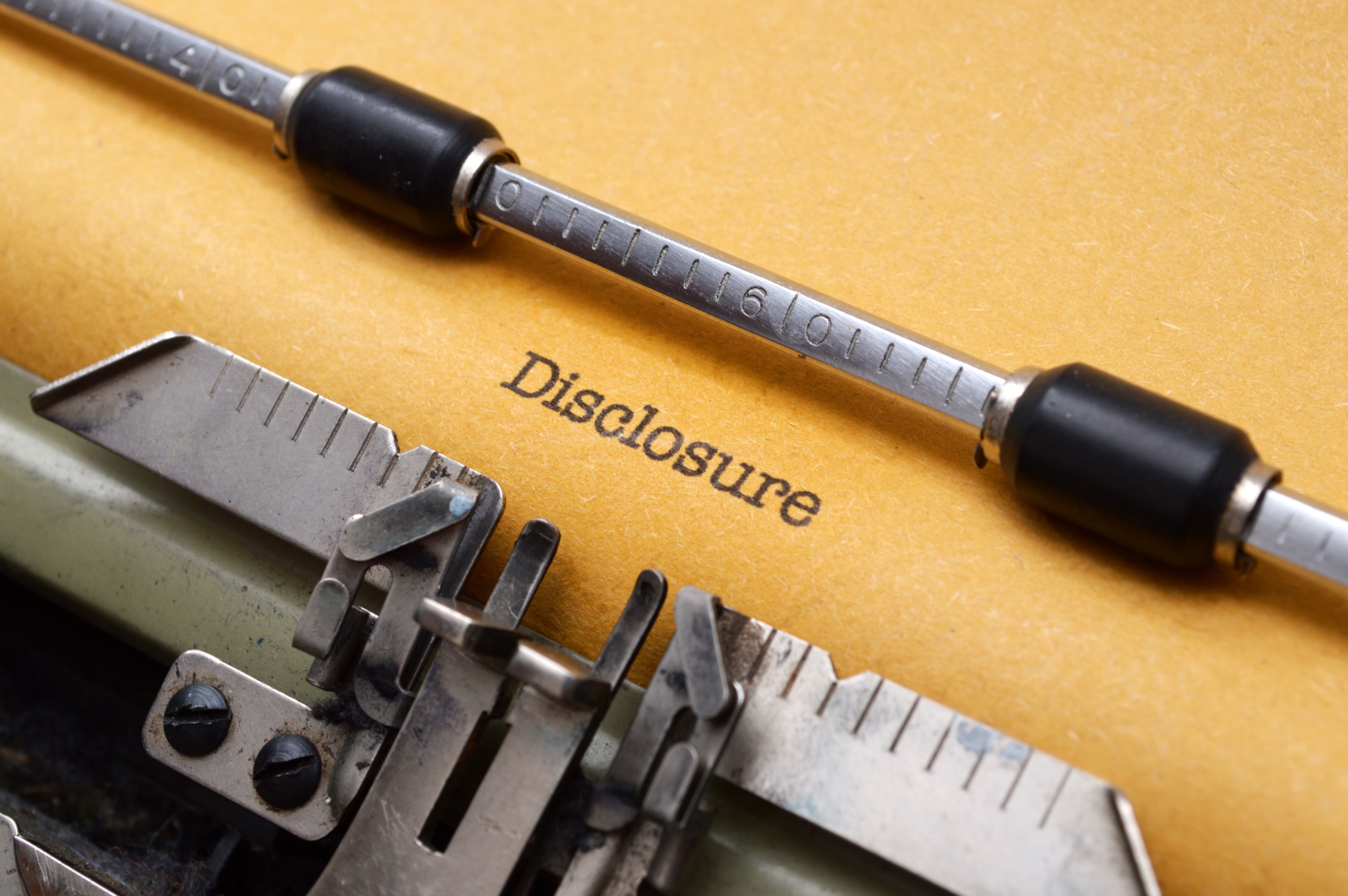As you go through the divorce process in Connecticut, you will be required to disclose certain information and documents to the other party. On the flip side, your spouse is required to disclose certain information and documents to you. Below is a closer look at the information and documents that must be made available, and what information can be protected from disclosure.
What is discovery?
In a Connecticut divorce, you and your spouse are required to make full and frank disclosure of your finances through an information gathering and document exchange process called discovery. Regarding divorce disclosure, pertinent information and documents are shared to allow both you and the Connecticut family court to understand your family’s total income, assets, and liabilities. This information provides the foundation for future discussions regarding the treatment and division of the income, assets, and liabilities.
What information and documents should I gather if I am considering divorce or my spouse has started a divorce?
If you want to decrease stress and increase your divorce lawyer’s ability to analyze your options, you can gather certain documents in advance or at the outset of your divorce. In particular, you should gather the following basic documents, which are required to be exchanged as part of a divorce:
- Federal and state income tax returns filed within the last 3 years, including personal, partnership, or corporate returns;
- IRS forms W-2, K-1, and 1099 for the past 3 years;
- All pay stubs or other evidence of income for the current year and the last pay stub from the prior calendar year;
- Past 24 months of statements for all accounts maintained with any financial institution, including banks, brokers, and financial managers;
- Most recent retirement account statements, including Keogh, IRA, profit-sharing, deferred compensation, and pension plans
- Most recent life insurance policy statements on the life of you or your spouse;
- Health insurance policy summary detailing coverage, cost, spousal benefits and COBRA costs following divorce, often obtained from your employer;
- Appraisals of any assets owned by you or your spouse (e.g. real estate, jewelry, art collections, coin).
What other documents may be relevant to my divorce disclosure?
Depending upon your situation, more extensive documents may be required to create a more complete picture of the current and future income, assets, and liabilities for divorce disclosure. For example, if you or your spouse are a beneficiary of a trust, there may be a request to provide the trust agreement, which details the terms of the trust. If you own a business, you may be requested to provide various financial documents, such as year-end financial statements, profit-and-loss statements, balance sheets, bank account statements, and more. In these more complex cases, it is important to discuss with an experienced Connecticut divorce lawyer how to strategically respond to such requests to disclose information and documents given your unique circumstances and goals.
In some divorces, credit card statements may also be required to be exchanged.
What other information should I provide my Connecticut divorce attorney?
Besides gathering documents, you can also prepare by compiling a list of the names and contact information of your trusted professionals, such as your CPA, wealth manager or trust & estates attorney, who may need to provide information and documents to your or your attorney relevant to divorce. You can give this list to your Connecticut divorce lawyer, and your lawyer can contact these professionals directly for secure electronic delivery of certain documents.
You may also reach out to these trusted advisors to request documents and information in advance. Be mindful regarding when you notify your trusted professional about your divorce and what you share with that professional who may represent your spouse as well.
When these documents are formally requested in the divorce process, they must be produced within 60 days unless the Connecticut family court says otherwise.
When additional information is required from my spouse, how do you obtain it?
In addition to requesting particular documents through the discovery process, you can also ask your spouse to answer questions in narrative form or to admit or deny certain allegations in writing. You can also take depositions of your spouse and third parties, including businesses.
Are any of my documents protected from discovery or being shared?
Documents and information are protected from discovery if they are not related and material to the divorce case. Typically, a fairly broad range of information can be considered material and related to the financial or custody matters in a divorce.
Requests for nonmaterial items may be excluded. For instance, sometimes requests are rejected for being too broad with respect to a timeframe. If you are divorcing after 10 months of marriage and you are asking your spouse for bank statements from 20 years ago, this will likely be deemed immaterial or not related.
What about privileged information?
Certain information is privileged and cannot be made available in the discovery process. For instance, communication between parties and their mental health counselor or attorney is privileged. It’s important to keep in mind that personal communication with others, such as your best friend or a family member, is not covered under the privilege statute in Connecticut.
What if my spouse does not provide the requested documents and information?
If the other side does not comply with the request for documents, you can pursue the production of the documents and information through the court system or from other sources, such as banks or third parties who possess the information. Connecticut family courts have the discretion to award attorneys’ fees for non-production of documents and information if previously court ordered to do so.
If you are considering a divorce and would like to speak to an experienced Connecticut divorce attorney, contact our attorneys at Ruel Burns Feldman. Call 860-206-9096 or click here.

